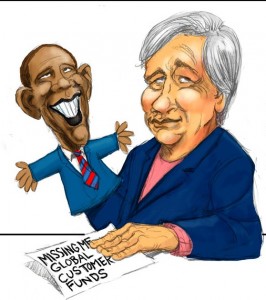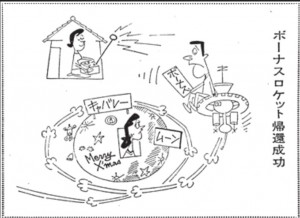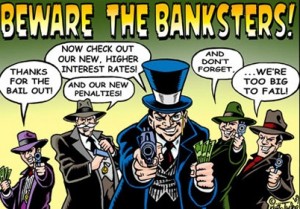Behind the bankers’ actions, however, stood a less-visible part of the finance industry that also came under fire. The big credit-rating firms – S&P, Moody’s and Fitch – routinely blessed the securities as safe investments. Two U.S. investigations found that raters compromised their independence under pressure from banks and the lure of profits.
Now there is evidence the raters also may have succumbed to pressure from the bankers in another area: The sale of billions of dollars in bonds by states and municipalities looking to quickly cash in on the massive 1998 legal settlement with Big Tobacco.
Credit-rating agencies are supposed to make independent judgments about the risks of a deal. But in their pitches for state business in tobacco bonds, bankers bragged they could manipulate the raters to get favorable treatment for their transactions.
A review by ProPublica of documents from 22 tobacco bond offerings sold by 15 state and local governments shows that bankers routinely bragged about having their way with the agencies that rated their products. The claims were brazen, the documents show, with bankers saying they routinely played one firm against its competitors to win changes to rating methods, jack up a rating or agree to rate longer-term, riskier bonds.
“Fitch reached out to UBS for input so that they would fall in line with the other ratings agencies,” UBS said after it and other financial services firms dropped Fitch from deals because of its “constraining” stress tests. Following the conversation, “Fitch amended their stress criteria,” UBS told officials in Michigan as it readied a 2006 deal.
In 2007, JPMorgan promised to negotiate Fitch to their knees if Ohio hired the bank for a $5.5 billion deal that was the largest sale, or “securitization” of tobacco settlement payments.
The 140 documents, unearthed through public records requests, show that bankers from six Wall Street firms – UBS, Bear Stearns, Citigroup, Merrill Lynch, JPMorgan and Goldman Sachs – claimed they could persuade the rating agencies to make favorable changes to their criteria.
Garnering better grades for the tobacco bonds meant the bankers could sell more of them, get a leg up on their competition and win millions of dollars in fees from the governments issuing the debt. The state and local governments were trading their annual tobacco payments for up-front cash by making the bond deals. As ProPublica has reported in a series of stories, the bonds have proved much riskier than advertised, leading to fiscal headaches for the issuers and losses for investors.
While there are no indications that the bankers did anything illegal, their claims further undermine the argument by the raters that their opinions are only the result of independent analysis.
Since the economy tumbled in 2008, the estimated $36 billion of bonds issued in the tobacco sector – like so many other corners of Wall Street – have proven to be founded on shaky assumptions.
The future may be even bleaker for a $3 billion sliver of the debt. Those securities, known as capital appreciation bonds, promised balloon payoffs so large – $64 billion, all told – that they are almost certain to default. The documents show bankers pressed rating agencies to ease criteria for evaluating those bonds as well.
ProPublica shared the tobacco bond documents with S&P, Moody’s and Fitch. All denied changing their methodologies, also known as rating criteria, in response to demands from bankers.
In an interview, Nicolas Weill, who oversees Moody’s rating methodologies for tobacco bonds and similar securities, said, “We don’t negotiate criteria.” Those criteria – such as stress tests that gauge how much cash is available to repay the bonds under various scenarios – are “never, ever’’ open to deal-by-deal changes. He said the firm may evaluate different deal structures but only if they meet those criteria.
Fitch said: “With respect to every one of the examples provided to us by ProPublica, we can affirm that no banker or other outside party unduly influenced any of these ratings decisions … We determine our ratings – they are not open to negotiation with issuers and bankers.”
S&P said “On the whole, the assertion that S&P’s cash-flow stress assumptions for tobacco settlement bonds were relaxed is false … credit ratings change because factors that affect credit risk change.”
ProPublica shared the documents with each of the banks. All declined to comment except UBS, which said the bankers involved no longer work for the firm, which exited the municipal bond business amid the 2008 market turmoil.
ProPublica also shared the materials with the Securities and Exchange Commission, which regulates rating agencies and has been working to reform the rating process since the abuses in mortgage-backed securities.
The SEC also has been investigating whether S&P bent its criteria to win ratings of commercial mortgage bonds. The regulator is now seeking to suspend S&P from that part of the business in what would be its toughest action yet against one of the big three raters.
The SEC declined to comment on the documents provided by ProPublica.
The documents give the bankers’ version of what happened, and some degree of exaggeration can be expected in any sales pitch. Nevertheless, former rating analysts, lawyers and regulatory experts who reviewed the documents said the consistency of the bankers’ claims across multiple years, deals and states, compared with known criteria changes and ratings, suggests the banks’ influence was real.
“Banks have a right to advocate for their clients – that’s normal,” said Mayra Rodriguez-Valladares, a financial regulatory consultant who reviewed the documents at ProPublica’s request. “What’s going on here is very different … this is the banks trying to convince rating analysts to make changes to their methodology, and that’s really crossing the line.” Same Old Ratings









